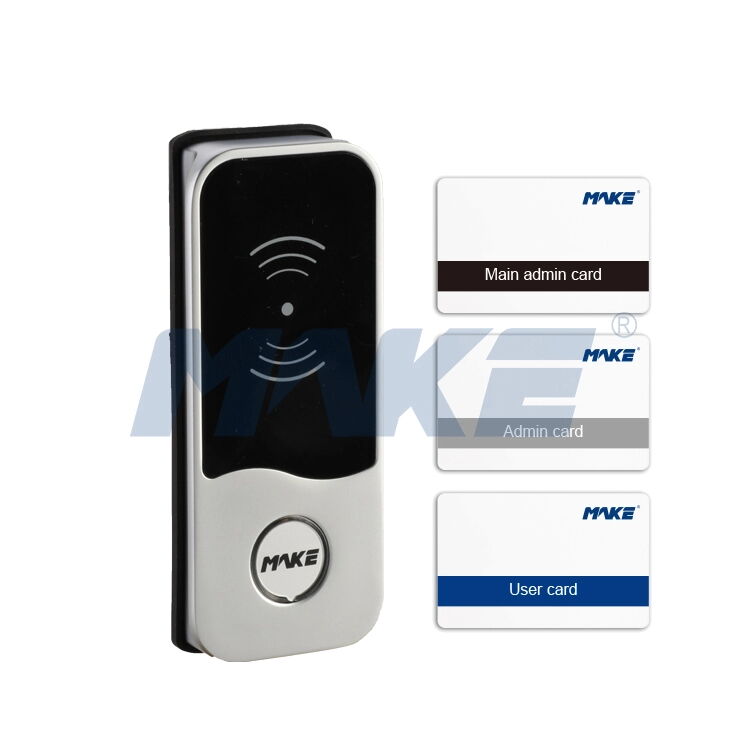In today's dynamic technological landscape, security solutions are evolving rapidly to meet modern challenges. RFID (Radio-Frequency Identification) door locks have emerged as a prominent innovation in access control systems. Unlike traditional locks that rely on mechanical keys, RFID locks utilize radio-frequency technology to authorize access through unique identification codes stored on RFID cards or key fobs.
Components and Functionality
An RFID door lock system consists of two primary components: an RFID reader and RFID cards/key fobs. When an authorized user approaches the locked door, they present their RFID card or fob near the reader. The reader emits a radio wave that activates the RFID chip within the card. The chip responds by transmitting its unique code back to the reader, which verifies the code against a database of authorized users. If the code matches, the door unlocks, allowing entry.
Advantages of RFID Door Lock Systems
Enhanced Security: RFID technology enhances security through encrypted data transmission. Each RFID card or key fob contains a unique code, making unauthorized access extremely difficult. This encryption adds an additional layer of protection against traditional lock-picking methods.
Convenience: Users appreciate the convenience of RFID door locks. Carrying a small RFID card or fob is more practical than managing a bulky keychain. In environments like hotels or offices, where frequent access is necessary, RFID systems streamline the entry process with a simple tap or swipe.
Access Control: Administrators have precise control over access permissions with RFID systems. They can easily manage and update access rights for individual users or groups, ensuring that only authorized personnel can enter restricted areas.
Audit Trail: Many RFID systems maintain an audit trail by recording entry and exit times. This feature is invaluable for security monitoring and compliance purposes, allowing administrators to track who accessed specific areas and when.
Safety Considerations
The safety of RFID door locks depends on the implementation of robust security measures, including strong encryption and authentication protocols. Regular updates and vigilant monitoring are essential to mitigate potential vulnerabilities and ensure the integrity of the access control system.
Applications of RFID Door Lock Systems
RFID door locks are versatile and find applications across various industries and environments:
Hospitality: In hotels and resorts, RFID door locks enhance guest experiences by providing secure and convenient room access. Guests receive RFID cards upon check-in, simplifying entry and enhancing overall security.
Commercial Buildings: In office buildings and corporate environments, RFID systems manage access to different floors, offices, and sensitive areas. They integrate seamlessly with building management systems to enhance security and operational efficiency.
Industrial Facilities: RFID door locks control access to machinery, hazardous areas, and restricted zones within factories and manufacturing plants. They help maintain safety protocols and prevent unauthorized access to critical equipment and materials.
Educational Institutions: RFID systems manage access to dormitories, classrooms, and administrative offices in schools and universities. They improve campus security by restricting access to authorized students, faculty, and staff members.
Conclusion
RFID door locks represent a significant advancement in access control technology, offering enhanced security, convenience, and flexibility across diverse applications. As organizations continue to prioritize security and operational efficiency, RFID systems are becoming indispensable tools for managing access and ensuring safety in modern environments. Embrace the benefits of RFID technology and elevate your security infrastructure with advanced access control solutions.

Advancing Security with RFID Door Locks

